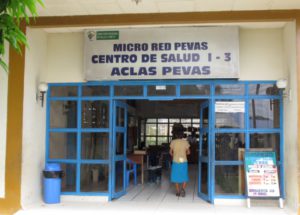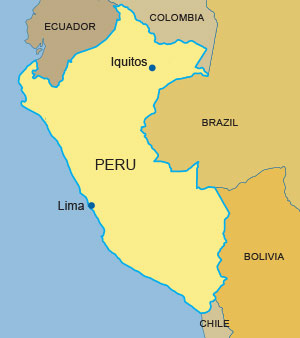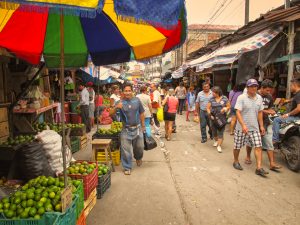COVID-19 Devastates Populations in Peruvian Amazon
WiRED to Supply Community Health Worker Training during Crisis
By: Allison Kozicharow; Edited by Jessie Crowdy
 The following story is based on a report sent to WiRED International from Dr. Devon Graham. Dr. Graham is the president and scientific director of Project Amazonas, a nongovernmental organization and WiRED partner, whose goal is to serve the neglected and isolated communities of the Amazon and to conserve the rainforest. Annually over the past eight years, a WiRED team has boarded the Project Amazonas medical boat the “Nerita” and traveled to off-the-grid villages accessible only by water. During these trips, WiRED distributes its health education programs and materials and, working with Project Amazonas, provides a WiRED-developed electronic medical record system. The journey always begins out of the port city of Iquitos, Peru, the “capital of the Amazon.”
The following story is based on a report sent to WiRED International from Dr. Devon Graham. Dr. Graham is the president and scientific director of Project Amazonas, a nongovernmental organization and WiRED partner, whose goal is to serve the neglected and isolated communities of the Amazon and to conserve the rainforest. Annually over the past eight years, a WiRED team has boarded the Project Amazonas medical boat the “Nerita” and traveled to off-the-grid villages accessible only by water. During these trips, WiRED distributes its health education programs and materials and, working with Project Amazonas, provides a WiRED-developed electronic medical record system. The journey always begins out of the port city of Iquitos, Peru, the “capital of the Amazon.”
Despite early action by the Peruvian government, COVID-19 continues to devastate the nation. Once in Lima, the virus rapidly spread to the city of Iquitos and from that gateway to remote villages along the Amazon, an area where WiRED’s partner, Project Amazonas (PA), provides medical services. Working with PA, WiRED provides health education and other IT resources, including an electronic patient record system that runs entirely off the grid; patient data collected in remote regions can be uploaded to country-level data programs for aggregation and analysis.
PA’s Dr. Devon Graham reported to WiRED that “The situation with COVID-19 in Iquitos, is grave. It is hard to imagine a more steadily worsening scenario. If the numbers from May 14 are correct, that would indicate a staggering 44% mortality rate unprecedented anywhere else in the world at this time.”
 The grim reality of the COVID-19 epidemic in Iquitos is as follows:
The grim reality of the COVID-19 epidemic in Iquitos is as follows:
- The official count of cases and deaths is vastly underreported, with rural areas not reporting.
- Hospitals are overwhelmed and not able to record every victim.
- People are dying at home and being buried quickly because of the tropical climate.
- Testing is extremely limited, and only the wealthy are being tested.
- Pharmacies are completely out of stock of necessary medications.
- Very few if any ventilators are available, while oxygen tanks are scarce and expensive.
- There is a void in civil leadership. The military and police are struggling to keep order.
- Lockdown and curfews are isolating people further from help and wreaking havoc on their livelihoods. Food and money to buy it are scarce.
- The already inadequate infrastructure is breaking down throughout.
Dr. Graham said, “Multiple reports note that the two main hospitals in Iquitos have collapsed. Patients are lying on blankets in hallways, and bodies wrapped in plastic are stored in side-rooms until family members can recover them, or they are being put in mass graves located near the municipal landfill…. Of late, 189 of 350 medical doctors and 80% of health workers have been infected in Iquitos, and many have died.”

What is WiRED doing to help? Two weeks ago, WiRED Executive Director Gary Selnow, Ph.D., arranged with Dr. Graham to set up WiRED’s Community Health Worker (CHW) Training Program (see video) in Iquitos. This accredited program provides a comprehensive curriculum based on World Health Organization standards. WiRED has recently augmented the curriculum with seven additional training modules on infectious disease control to enable CHWs to assist with the challenging situation faced by communities around the world, including Iquitos and the surrounding regions.
Dr. Selnow said, “Reading Dr. Graham’s description of the dire health situation in Iquitos is a heartbreak. We have spent a lot of time with Project Amazonas working on the Amazon River from Iquitos, and, over the years, we have come to appreciate the warm and welcoming people and their spirited lifestyle. It’s difficult to grasp the scale of the devastation that COVID has inflicted on this population. We are committed to training as many community health workers as our resources allow. Each trained CHW can assist the local medical community with prevention, health surveillance and patient care to help ease the burden of this epidemic.”


